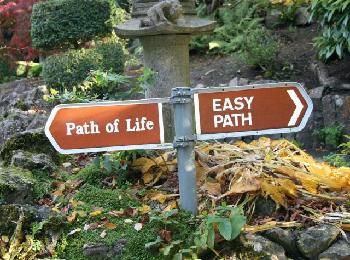There is an old proverb which says, “We would all be rich, if we didn’t have to eat.” This is simply another way of saying that we all have priorities, and we make our choices in terms of them.

Some men choose to be miserly on food, clothing, and shelter, because they value money so highly. They may like their family, but they love money more, and so they sacrifice everything to accumulate money. Others sacrifice for their children, and everything else takes second place in their lives.
Many other examples could be cited, but we can summarize it thus: we are always making choices, consciously or unconsciously, in terms of what we prize or love the most. Our choices reveal our faith.
Joshua summoned Israel and us to decision, declaring, “[C]hoose you this day whom ye will serve,” the Lord or false gods (Josh. 24:15). Later, Elijah summoned the people to decide between God and Baal (1 Kings 18:21). Over and over again, the Bible demands that we choose, and warns us that all our actions represent a choice.
as to what we believe in, what we sacrifice for,
and what we have chosen.”
Everything you and I did last year and yesterday, and are doing today, represents a choice, and a decision about priorities. Our lives continually witness for us or against us as to what we believe in, what we sacrifice for, and what we have chosen.
But here a strange and remarkable fact enters in. The godly man recognizes that he has been called and chosen by God. He is therefore under authority. His choices have been made by God and set forth in Scripture. The Ten Commandments spell out God’s choice and law. Man has no free option. One way is sin, and the other faith, obedience, and blessing. The godly man rejoices in God’s Word and choice, and it is his joy that God “shall choose our inheritance for us” (Psalm 47:4).
Our choices thus reveal whether or not we are chosen by God or self-chosen. The self-chosen say, “My will be done,” whereas the chosen of God, as C. S. Lewis saw, will say to God, “Thy will be done.”
Your life reveals your choices. What are they?
